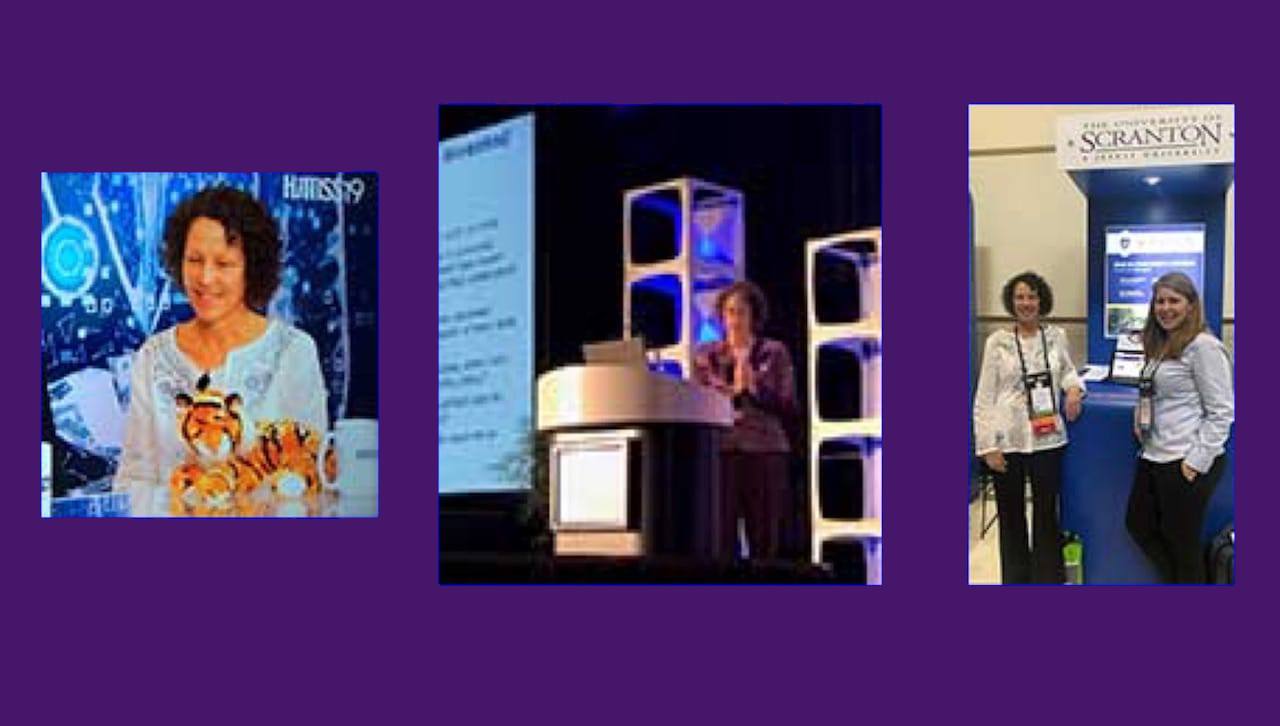Health Informatics Professor Presents at Conference

Beth Elias, Ph.D., an adjunct faculty member in The University of Scranton’s online health informatics program, was invited to speak at the 2019 Healthcare Information and Management Systems Society (HIMSS) conference, which convened in Orlando, Florida, earlier this year and brought together 40,000 health information and technology professionals from more than 90 countries to discuss, debate and co-invent the future of health information management.
Dr. Elias spoke as part of the prestigious “Views from the Top” sessions at HIMSS, a collection of educational sessions from those considered high-level leaders in the field. Dr. Elias became a HIMSS Fellow in 2018, but has been involved with the organization for many years.
“It is such an honor to be recognized for my contributions to the organization and to Health Informatics,” Dr. Elias said. “HIMSS is truly an inter-professional and interdisciplinary organization that welcomes everyone."
In her role with the University, Elias shares her healthcare technology expertise with students in the online Master of Science in Health Informatics program, but at HIMSS19, Dr. Elias spoke of an international effort to set high and consistent standards for the education of health informaticians across international borders.
“We must ensure we are preparing students who will be able to serve as effective health informaticians when they graduate,” said Dr. Elias, who alongside co-presenter Ursula Hübner, Ph.D., professor at the University of Applied Sciences Osnabrueck, shared results of their work.
The project, known as the TIGER (Technology Informatics Guiding Education Reform) International Competency Synthesis Project, began in 2015 when the organizers started collecting case studies and survey input from around the world, as part of an effort to understand the current state of educational competency standards.
After two years as a committee member on the project, Dr. Elias’s role expanded in 2017 to serve as national co-chair, where she worked with a team of representatives from 21 countries to standardize education. The end result: a robust framework that offers a structure for high-quality, consistent international standards while taking into differences across borders and cultures.
For Dr. Elias, her interest in this work comes from a desire to make the field stronger for everyone – including her students at Scranton.
“Any work we do to understand how to better prepare students to be effective health informaticians helps our students stand out from others,” Dr. Elias said. “Projects like the International Competency Synthesis Project allow us to learn not only what we need to teach, but also informs us in the best methods.”
Scranton offers an online Master’s of Science in Health Informatics.






